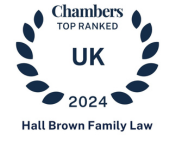Smartphones, Scrutiny and Rise in ‘DIY Divorce’ see Private Detectives going out of Fashion
Published on 08 October, 2017 | Back to News/Press

Careless straying spouses who leave ‘digital footprints’ and a rise in the number of husbands and wives choosing to handle their own divorces has led to a drop in private detectives getting involved in marital disputes.
One of the country’s leading family law firms has found that investigators now only feature in less than one per cent of divorce cases – down from just over five per cent in 2011.
Alice Couriel, a Solicitor with Hall Brown Family Law, highlighted how, in the same period, the number of so-called ‘DIY divorces’ had more than doubled.
She outlined how couples spurred to try and formally end their marriages as cheaply as they could following the withdrawal of Legal Aid in 2013, now regarded private investigators as an expense they could do without.
Ms Couriel added that the development coincided both with greater official scrutiny of how information used in divorce is gathered and improved technology.
“It wasn’t so long ago that private detectives were considered essential to some divorce proceedings, in particular gathering evidence of a spouse’s infidelity or their financial worth.
“However, they have become marginalised by a combination of economy, technology and understandable concern about the manner in which material is collated.
“Some couples affected by the withdrawal of Legal Aid and unable to even afford a divorce lawyer now would appear to regard private investigators as a luxury.
“A Court of Appeal ruling forbidding the use of secretly obtained documents and pressure from the Information Commissioner’s Office (ICO) has meant that private detectives are reduced to using the internet or social media for research.
“Even so, that is something which many more individuals are able to do because of the evolution of smartphones, for example, and the sheer amount of material available online. They have effectively become DIY divorce detectives.
“Many men and women going through a divorce also understand that hiring a private investigator doesn’t just create the wrong impression but, if information is obtained illegally, there can even be criminal penalties involved. They reckon that the stakes are high enough in divorce without any additional risk.”
Ms Couriel’s comments come a decade after one study suggested that private investigators were hired in 49 per cent of divorces in 2006 to try and establish impropriety or infidelity by one or other spouse.
Since then, the number of divorces in England and Wales has fallen by 23.5 per cent.
The Government’s decision to withdraw public funding for many types of family law case, including divorce, has also seen the number of marital breakdowns completed without the assistance of lawyers increase from 11,000 in 2011 to more than 27,000 last year.
Ms Couriel indicated that an Appeal Court ruling in 2010 had brought an end to spouses’ ability to secretly obtain one another’s documents for use in divorce proceedings.
The then Master of the Rolls, Lord Neuberger, decided that two brothers-in-law of a South African businessman, Vivian Imerman, should hand back in excess of 250,000 documents which had been copied without his knowledge from a computer in their shared office. They claimed the papers demonstrated he was concealing his true wealth from their sister, Lisa, in their divorce.
Lord Neuberger concluded that ‘the Hildebrand rules’, which many lawyers had previously argued permitted such behaviour, did not amount to a defence in the case of “conduct which would otherwise be criminal or actionable”.
His judgement followed a series of high-profile examples of mixed fortunes for those relying on the expertise of private investigators.
In 2007, the oil and banking heir Matthew Mellon was cleared of hacking into the e-mails of his ex-wife, Tamara, the founder of the Jimmy Choo shoe brand. He maintained that he had no idea that private detectives, who he’d hired during their divorce proceedings, were breaking the law.
A year later, the ex-wife of TV and radio presenter Chris Tarrant agreed a £12.5 million divorce settlement after private detectives provided information that he had been unfaithful.
Ms Couriel described how the Court of Appeal ruling meant that there was now greater demand on divorce lawyers to show that divorce petitions were not based on material uncovered “illegally or unlawfully”.
“Such an obligation is another reason why those, like myself, who are handling divorces are so reluctant to entertain the need for a private detective.
“It amounts to an unnecessary complication not only for clients but for a lawyer’s entire career.”







